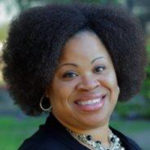
Building Numeracy Skills in Early Childhood – Podcast Episode 157 | Classnotes Podcast 157
Podcast: Play in new window | Download
Classnotes Podcast (November 9, 2015) Numeracy is the ABCs of math. It is a critical foundation for using math in everyday life. We need numeracy skills to solve problems and make sense of time, numbers, patterns and shapes for activities, like baking, reading a bill or map, and playing games and sports. And just as families help young children learn their ABCs on the path to reading literacy, everyday counting and grouping activities help children their numeracy skills.
Math educator, Paula Martin Johnson, M.A., an IDRA education associate, discusses the importance of supporting numeracy development in early childhood using the home language and everyday activities. She gives several examples and points to resources as well. Paula is interviewed by Aurelio M. Montemayor, M.Ed., IDRA senior education associate.
Show length: 14:47
Send comments to podcast@idra.org
Sign up for Classnotes e-mail alerts.
Resources
“Applying Math to Children’s Lives”
by Kathryn Brown, IDRA Newsletter
http://www.idra.org/resource-center/applying-making-math-to-childrens-lives/
Semillitas de Aprendizaje™ Preschool Math Books
This set of 15 small books is designed for classroom and home use. The books feature photos of farm animals and focus on numeracy and social-emotional development. Each book includes basic concepts, questions and vocabulary (Spanish, English).
http://www.semillitasdeaprendizaje.com/index.php/math-books
Numeracy Continuum K-10
State of New South Wales, Department of Education
http://www.numeracycontinuum.com/
How do young children learn numerical skills?
Encyclopedia on Early Childhood Development
http://www.child-encyclopedia.com/numeracy
Support Math Readiness Through Math Talk
by Eugene Geist, National Association for the Education of Young Children
http://families.naeyc.org/learning-and-development/music-math-more/support-math-readiness-through-math-talk
5 Ways to Build Math into Your Child’s Day
By Laura Bilodeau Overdeck, National Association for the Education of Young Children
http://families.naeyc.org/learning-and-development/music-math-more/5-ways-build-math-your-childs-day
“Dos Pollitas Listas ~ Shaping up with Geometry,”
PowerPoint presentation Adapted from a presentation at the National Migrant Education Conference, April 9, 2014
http://www.idra.org/images/stories/Dos_Pollitas_Listas_adapted.pdf
Advice & Answers for Parents about Supporting their Children in Math
http://www.math.com/parents/advice.html
Family Math
http://www.lawrencehallofscience.org/equals/
Sites to Help Parents Help Their Children – Mathematics Help
http://www.internet4classrooms.com/parents.htm
Adding It Up: Helping Children Learn Mathematics
By Jeremy Kilpatrick, Jane Swafford, Bradford Findell, editors; Mathematics Learning Study Committee, National Research Council
http://www.nap.edu/read/9822/chapter/1#xvi
Your feedback
We welcome your comments and questions to the podcast. Send an e-mail to podcast@idra.org.
Listen to every episode!
To ensure you don’t miss a single episode of IDRA Classnotes, subscribe to the podcast in iTunes, (download iTunes free if you don’t have it) or sign up to receive an e-mail alert as soon as a new show is published.



